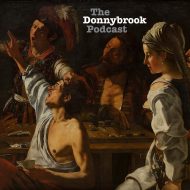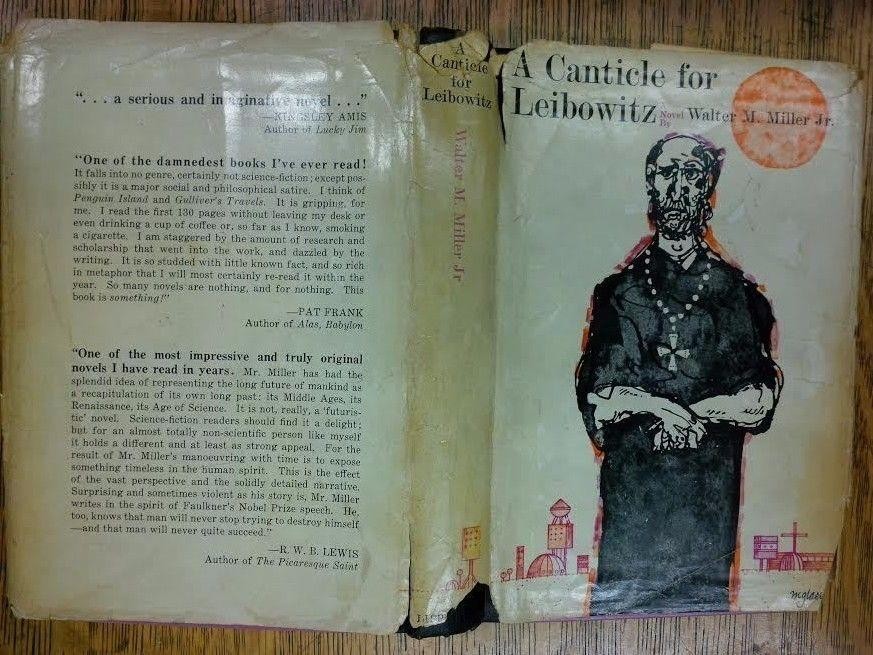Everyone loves a good apocalypse. Even better, we love a good post-apocalypse where humanity gets its, um, stuff, sorted back out. Here is a ranked list of my favorite post-apocalyptic novels. For best post-apocalyptic movies there is a simpler “list”: watch Fury Road and then rewatch it 7 more times. You’re welcome.
8. I Am Legend
A wise man once said, ‘never judge a book by its movie’ (for which we may be eternally grateful). Matheson’s novel is very much a product of it’s mid-century time as it explores the psychology of isolation, man’s need for purpose, and some of the practical realities of living in a world without functioning supply chains. Protagonist Robert Neville’s mission and the reversals he encounters were innovative for the genre but may not seem so, given the way they’ve been beaten to death in later works. The “humanity of the monster” trope is subtly developed here.
7. Seveneves
Neal Stephenson can do anything, I’m convinced. A novel about physics-monks? Sure. A libertarian gig-economy with ancient Sumerian brain viruses encoded on clay tablets? Of course. An apocalyptic world-destruction novel with the post-apocalyptic sequel built in? Definitely. I can’t say much about Seveneves without “spoiling” it (a concept I barely accept), but it is truly innovative and richly imagined while adhering very closely to scientific realities and near-future possibilities. Gene-editing, micro-robotics, close-quarters human society, and the risks of low-orbit space travel are all part of the slow-build but, as always with Stephenson, they pay off.
6. The Parable of the Sower
A weirdly prescient (the presidential candidate runs on a campaign slogan of “Make America Great Again“) novel, Octavia Butler’s exploration of a disintegrated United States is rich. She offers a world of severe and pervasive unemployment, innovative drug abuse, and privatization of governmental functions. Society functions in small enclaves that survive on meager incomes by survival gardening. Butler centers her novel on a religious development which I don’t find entirely convincing, however, her character development is so compelling that the novel, and it’s sequel (The Parable of the Talents), are well worth the time.
5. When the English Fall
It’s brand new and thus, I’m conflicted about recommending it so highly, however, this solar-storm apocalypse is both a compelling commentary on modern society’s divorce from the land and a pastoral novel of Amish farm life. Charmingly written and creatively imagined: Wendell Berry meets Peter Hobbs in George Stewart’s backyard.
4. The Handmaid’s Tale
Well known now that it has its own Netflix series which I have studiously avoided, Margaret Atwood’s declining-fertility, toxic-waste, religious-fundamentalist-control story is a thoughtful commentary on the way things could go bad if they were to go this bad in the central United States. The daily routines and details of her story have a compelling internal consistency and are elegantly structured. The dullness of a world where women are not allowed to read…well…that is definitely a personal hell.
3. Earth Abides
Isherwood Williams is the apparent protagonist of George Stewart’s novel but the Earth herself, her rhythms, her permanence, and her complexity is actually the central character. Ish wants to hold on to civilization in the face a disastrously fatal disease but what he understands of human society is shockingly limited and cannot be preserved by his sluggish efforts. The formation of a tribe in the midst of decaying abundance is a beautiful picture and Ish’s struggle to let go of his intermittent ambitions and accept the loss of literacy is moving. Much like I Am Legend, Earth Abides, does have some odd mid-century preoccupations: the image of humans surviving for an entire generation on remains of canned food is, I think, a very 50’s conceit.
2. A Canticle for Leibowitz
In some ways Walter M. Miller Jr.’s novel is the best of the post-apocalyptic novels, although I don’t here classify it as number one. Catch me on another day and in another mood and I would. [Editorial Note: John prefers Canticle over WWZ! ] Its cyclical plot, its subtle and complex reference to historical patterns and events, its religious framing, and its varied narrative voices are all perfection. It’s three sections create an elegant internal trilogy that is well-unified around the central conceit. Miller gives the reader insight into monastic practice, preservation of knowledge, and political powers outside of religious institutions.
1. World War Z
OK. I know. The movie was terrible: Brad Pitt saves the world while drinking product-placement-Pepsi. Still. This is simply the greatest of the post-apocalyptic novels. Max Brooks can write. I mean, the various characters don’t all have distinct voices and there are significant gaps in the coverage of this faux-documentary. However. There is simply no other post-apocalyptic novel that so thoroughly explores the social and physical realities of facing a world-wide disaster like this one does. Yes, it’s zombies, which is an absurd conceit on all levels, however, Brooks goes to the heart of what a zombie story is and then delicately dissects it for clear understanding. A zombie story is an outworking of the human fear of loss of culture and loss of self (and the ways those are connected). Rooted in fears of voodoo on sugar-plantations, historically connected to the fear of the advancing Muslim armies in the middle ages, given new life by modern concerns about loss of autonomy and intelligence in a planned and controlled society, the zombie story manifests the darkest fears of the human individual and the human society and World War Z offers a realistic (I KNOW!), gritty, but ultimately hopeful analysis of human response to this kind of crisis.

